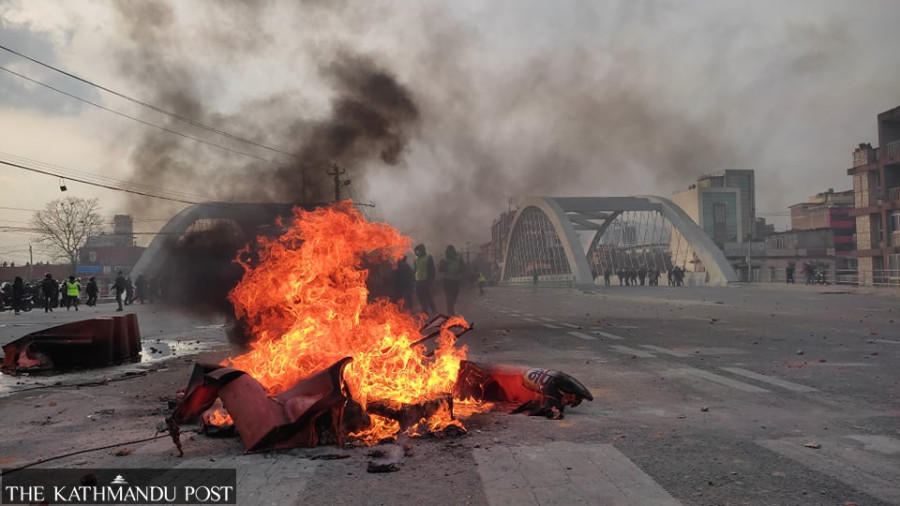Editorial
Pie in the sky
There is no end to ludicrous talk from the politicians when it comes to promises.
Instead of focusing on conducting the local and general elections, the country is wallowing in the MCC fiasco. It is natural for politicians in other nations to aggressively tackle endemic problems centred on the economy, social welfare, health and education. But these are issues rarely discussed in the election manifestos. The elections of 2017 resulted in one of the strongest mandates accorded to a political party since the reinstatement of democracy in 1991. Forging an alliance between KP Sharma Oli’s CPN-UML and Pushpa Kamal Dahal’s Maoist Centre seemed an uphill task, and many were still sceptical of their election success. But the results put all doubts to rest.
And despite a landslide victory, secure in numbers, the fickleness amongst the politicians was evident from the start. Instead of focusing on the people’s problems, they fought over ministries and lucrative berths. Unable to satiate their egos, they decided that the interest of the nation would be better served only if their vested interests were secure. Constant bickering eventually led to the fall of a government supposedly built on an unshakable foundation guaranteed by the most decisive mandate in the last 30 years.
And yet no apology was rendered for the betrayal of the mandate given to them, nor have we seen any form of expression of regret for their disastrous track record so far. The severe difficulties people faced from the successive waves of the pandemic have been all but forgotten. The cash schemes promised by the government for the multitudes of daily wagers have failed to materialise, yet no concrete steps have been taken to bridge the gap in policies. Despite hardships, the affected people have stayed away from those grants due to rigorous criteria.
Instead of clearing hurdles to facilitate services, the authorities are mainly seen to operate without concern; their duty has been fulfilled by simply announcing the schemes. The successful completion of a task ensures that the objectives set out are met. The responsibility of the government doesn’t end with the announcement of plans. If there is poor response to the schemes, perhaps the authorities need to delve deeper to understand the reason behind the lacklustre reaction from the public. Absconding from responsibilities does not end the plight of those who have to rough it out day in and day out without any respite.
There is no end to foolish talk from the politicians when it comes to promises. The people have been promised everything from operating ships to facilitating the movement of goods to tunnelling through hills to bring in trains, to connect Nepal with China and the world better. Yet the people are left to grapple with basic necessities. Where is the fabled Melamchi Water Project? Why do the politicians never seem to discuss the burgeoning trade deficit? How do the authorities intend to tackle the on-going inflation? Instead of making delusional promises, how about operating at a rational level for once?




 18.12°C Kathmandu
18.12°C Kathmandu














